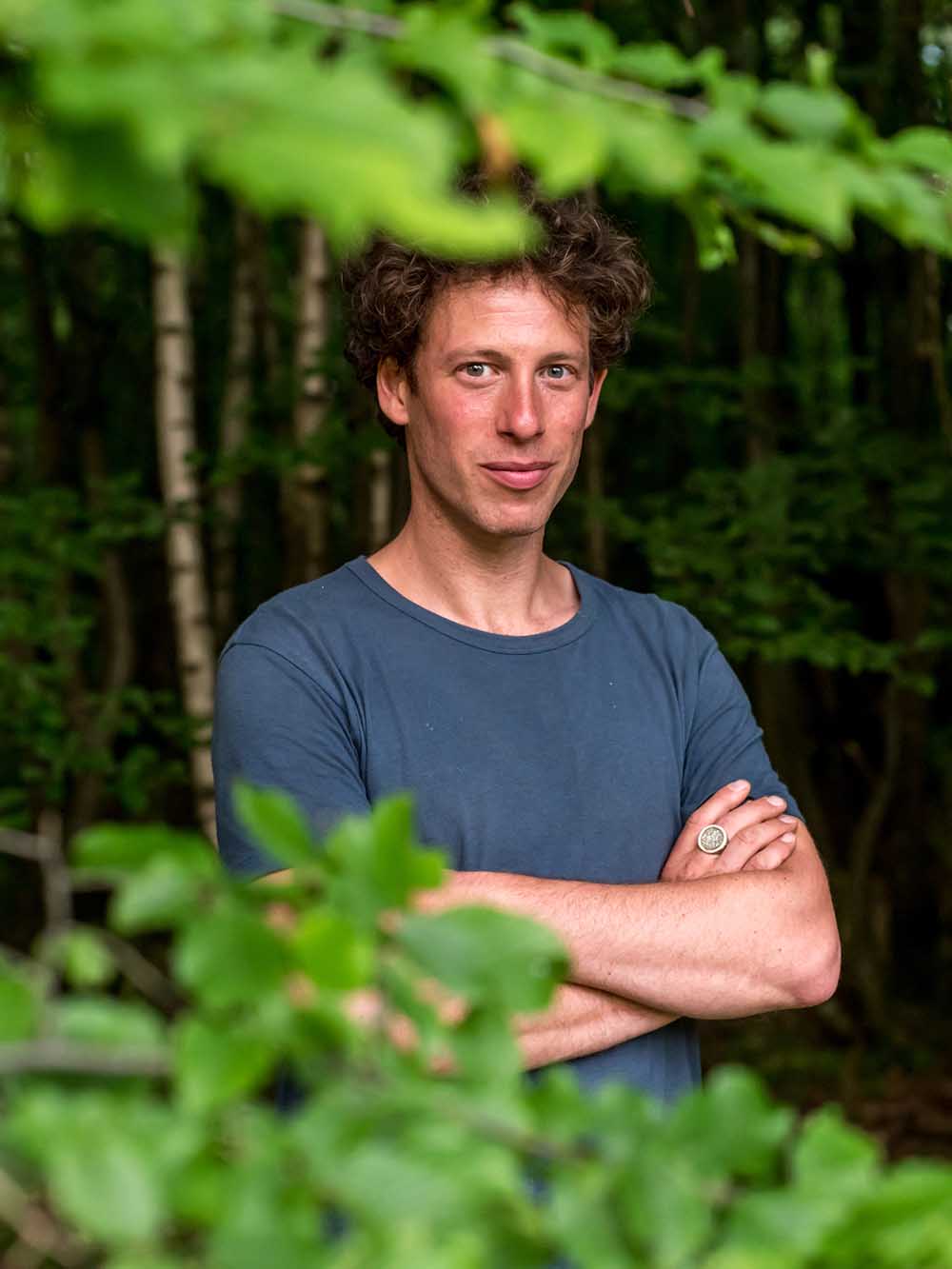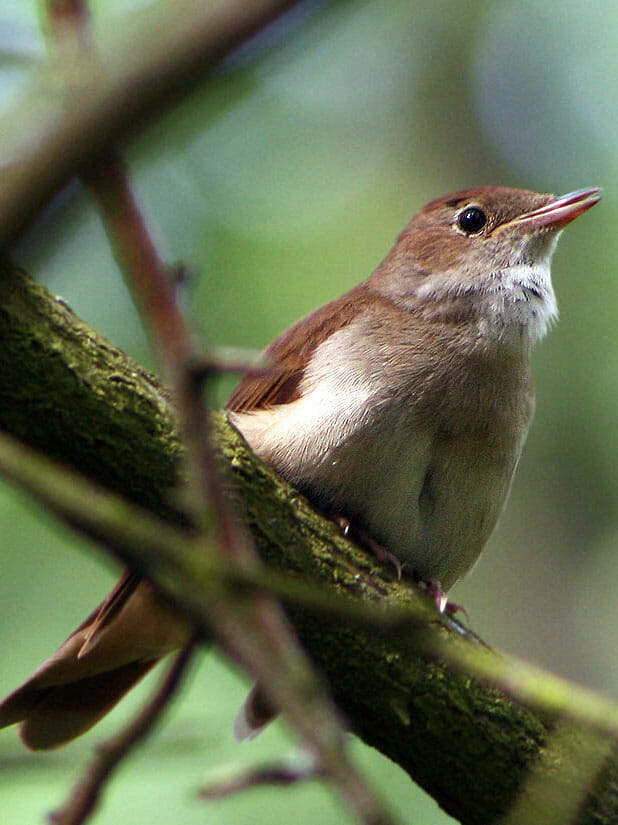On 30 April, as the sun sets on Dartington Hall, Sam Lee’s Singing With Nightingales is to take you into the woods to sing with a bird that is now sadly extinct in Devon. We caught up with him to find out about the man behind the project and to get a sense of what to expect on the night…
Dartington Hall’s Will Kemp: As we are currently celebrating the centenary of the Forestry commission, I thought it might be good to start talking about your background. You weren’t always a singer, were you? I read that you went travelling with Ray Mears, is that right?
Sam Lee: It is true. When I was very young, 19 years old, I was very involved in nature connection work; I’d grown up in the Forest School Camps community. Ray invited me on a reccie out in British Colombia in 1999. We went on a very extraordinary trip up the coast to the bottom of Alaska. We encountered grizzly bears, giant salmon, red cedars and yellow cedars and all sorts. It was an amazing journey of learning about communities living close to the land, and also about the beauty and the complexity of nature which Ray Mears is a great master of, so it started my education into wilderness work I guess.
WK: And how did that interest in the wilderness shift into collecting and performing folk songs?
SL: Growing up in Forest School Camps not only involved lots of being out in nature and working with nature, but also sitting around the campfire singing songs, some of which were old folk songs. I was probably in my early 20s that I started to want to look into these songs that I discovered were part of an indigenous British oral culture. I guess I’d been looking for a few years by this point at music and practices of indigenous communities around the world but never realised that there was one in the British Isles. So I went down that journey, and really it’s only been in the last five or six years I’ve started to connect the two and realise how one is so consequential of the other, that to separate folk music from our complicated connection to nature in this country would be to not honour a very profound kind of DNA strain within our oral music, our vernacular tradition.
WK: This project Singing with Nightingales, which you are bringing to the Dartington estate, sounds like a great balance of the two – the ecological world on the one hand, and the musical world on the other.
SL: Absolutely. The two celebrations really happen together. The songs we’re singing early in the evening around the fire and later with the birds are sung in the most natural habitat you can possibly imagine. They just feel so utterly meant to be sung in that situation, free of amplification, or walls or roof. We’re just there around the fire under the stars. To be in the springtime woods and to tune in to the real message in those songs brings the natural environment to life in a way that descends from technicolour. When you’re with the nightingale and the nightingale is singing and we’re singing back and in the darkness, in the depths of a thicket, it’s just spine-tingling… visceral I guess is the word. It’s magical, so everything feels connected at that point. It’s a great privilege really.

WK: Apparently we don’t really have nightingales in the South West, they’re more specific to the South East of England – so it is interesting to think that the sounds of the birds are actually being transmitted into a place where they don’t normally exist, though perhaps where they once used to exist…
SL: They did. And it wasn’t that long ago. Technically, the nightingale is extinct in Devon, though there are reports of there being a few that are still living. I guess that’s it: we are experiencing what that sense of silence feels like – ecological silence – where creatures, birds, insects once hummed and sung and chirped are now falling quiet. So at a conservation level, the song (be that electronically or otherwise) is about drawing attention to what we are losing and what we have lost – technology can only go so far to create a connected experience. Ultimately, being there live with them is the most important thing. Working to make sure that the populations are stabilising and possibly growing is the ongoing point of the project.
WK: An excellent project. I can’t resist asking you, as we’ve started talking about Devon… I know many people will have seen your NPR Tiny Desk (a US live music showcase) recording of a song from Devon called ‘Over Yonders Hill’.
SL: Well spotted.
WK: I wonder what more you knew about Devon folk music specifically, both that song in particular and beyond that?
SL: Well I’m very pleased you’ve asked that. That song comes from Amy Birch, of the Birch/Orchard family, who live down on the Devon/Cornwall border – a wonderful Gypsy family who sing, step dance and play accordion to this day. I owe Devon an enormous debt because my first encounter with folk music really, was at the Wren Trust’s Baring-Gould Song School in Okehampton devoted to the Reverend Sabine Baring-Gould (1834-1924), the great pioneering song collector from Devon. His collection of late 19th Century songs became a real source repertoire as well as the work of community musician Paul Wilson, and his collections of Gypsy songs from the area. So actually I’ve done a lot of work on Devon Folk songs and worked at Sidmouth for a little while – it’s a core part of my repertoire.

